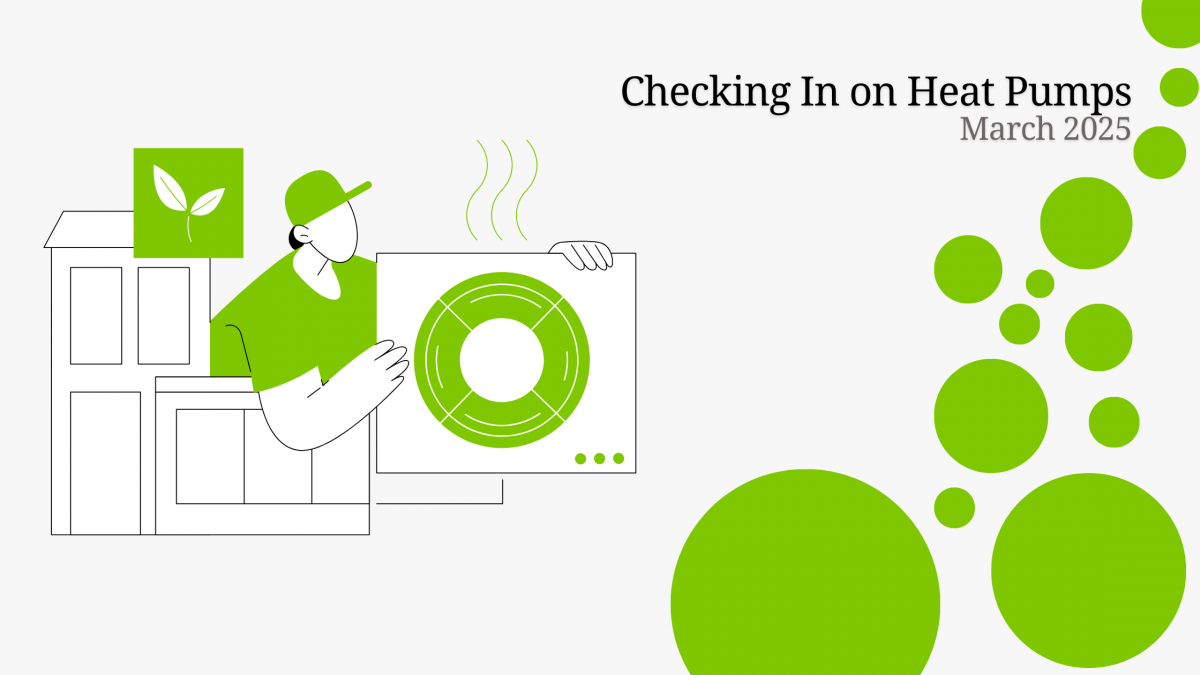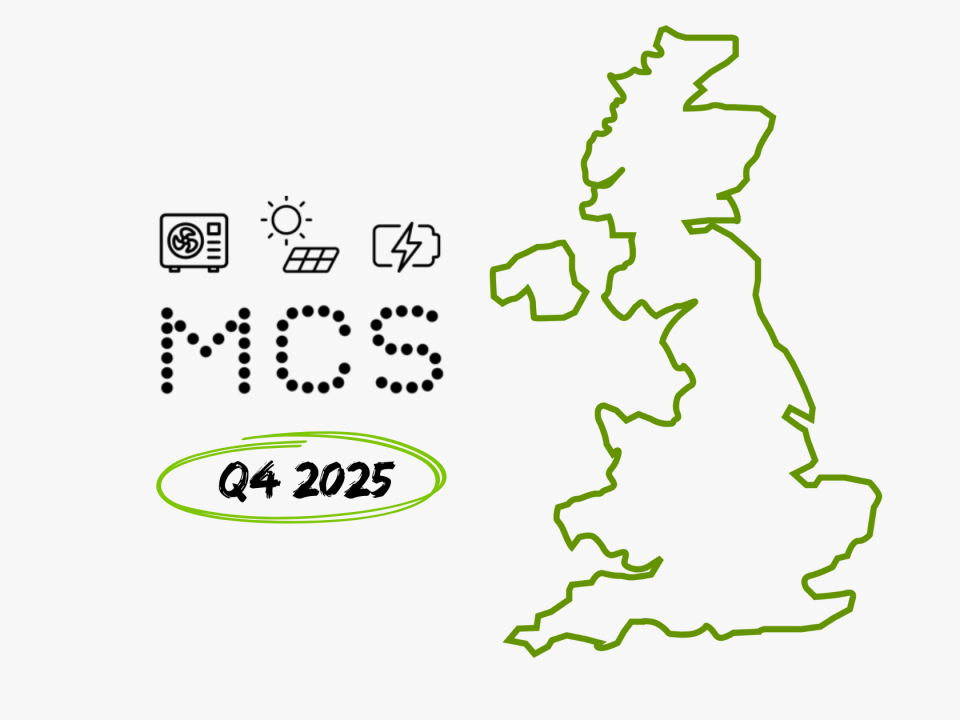
Navigating Energy Policy Changes: Updates on ECO4, Fuel Poverty, and Flexible Markets
March 10, 2025
How the UK is Reducing Domestic Combustion Emissions: Progress & Industry Action
March 23, 2025In today’s blog, we check in on the rollout and adoption of heat pumps. As the UK marches towards it’s net-zero emissions target by 2050, decarbonising home heating is becoming a critical priority (BBC News). Heating homes is the second-largest source of the UK’s greenhouse gas emissions, with 80% of domestic emissions coming from gas boilers. As the electricity grid continues to shift towards low-carbon energy sources, including renewables and nuclear, the proportion of emissions from home heating becomes even more significant.
Why Heat Pumps?
The Climate Change Committee supports heat pumps as the primary replacement for gas boilers, ruling out hydrogen as a large-scale domestic heating solution. The CCC aims to see a dramatic increase in heat pump installations, from 60,000 in 2023 to 450,000 by 2030 and 1.5 million by 2035 (BBC News). However, challenges remain in making this transition happen at scale. One of these challenges is having an adequate number of trained specialists to design, install and maintain the systems in order to reach these lofty goals. Equipping yourself with the necessary training and certifications to do this, makes you part of the solution (and can make you some serious profits in process.)
Heat Pump Adoption
The CCC has called for the government to introduce additional financial support schemes to help lower-income households afford the home upgrades that improve heat pump efficiency. While the report does not suggest an outright ban on new gas boilers, it advocates for all new heating systems to be low carbon by 2035. There’s only so much training centres like us and the public can do, the government must provide necessary support to encourage the rollout and adoption of the systems. At GRE, we are committed to educating installers on the importance of design in efficiency and will continue to do our bit to ensure installers are following regulations and best practices to ensure the systems perform as intended.
Maximising Heat Pump Efficiency with Low-Temperature System Design
As touched upon above, one of the key factors influencing heat pump efficiency is how well the system is designed to operate at low temperatures. Heat pumps work best when integrated into a properly designed low temperature heating system, ensuring optimal performance and energy savings.
The BPEC Low Temperature Hot Water Heating Systems Course, offered by GRE Energy Training, is specifically designed to address this need. This course provides heating engineers, gas engineers, and installers with the skills required to design, install, and optimise low-temperature heating systems for maximum efficiency and cost-effectiveness.
Why Training Matters
- Improve System Performance – Learn how to design systems that enhance efficiency and reduce running costs for homeowners.
- Future-Proof Your Skills – With the demand for heat pumps growing rapidly, gaining specialised expertise will keep you ahead in the industry.
- Expand Your Services – Adding low-temperature heating expertise allows you to work on a wider range of installations, including government-backed projects.
Final Thoughts
As the UK transitions to low-carbon heating solutions, heat pump installations will play a key role, which we are sure you already knew being the renewable conscious reader you likely are. While adoption is still in its early stages, training in low-temperature system design will be crucial for heating professionals looking to stay ahead of industry changes and provide efficient, cost-effective solutions for customers.
Interested in mastering low-temperature heating systems? Enrol in the BPEC Low Temperature Hot Water Heating Systems Course today!
References
BBC News. (2024). UK heat pumps: Net zero and home heating. Retrieved from https://www.bbc.co.uk/news/articles/cpv4m3x1ldgo




